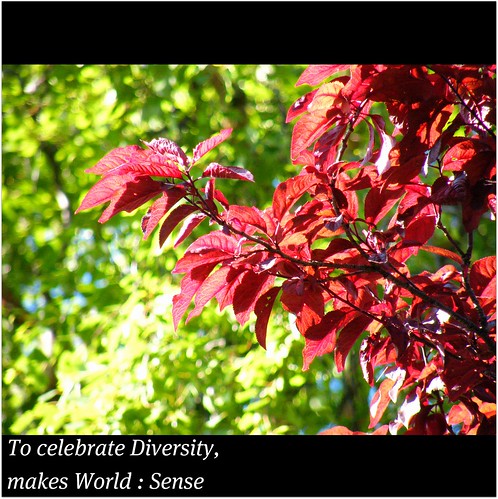
Image taken on 2010-06-19 18:24:16 by UggBoy?UggGirl [ PHOTO : WORLD : SENSE ].
The Diversity of World Religions
Baby boomers celebrate across a wide spectrum of religions. The Catholic church celebrates the rituals of Baptism; confession; communion; confirmation; marriage and the last rite. Many other World religions celebrate similar human events, albeit in a different format.
Judaism celebrates birth; betrothal; marriage and events that commemorate a person’s religious ‘coming of age’ in much the same way as Catholics.
Psychological articles teach us that Buddhism rituals of worship differ from other religions in that it is not considered to be important to worship in a designated location such as a temple or church: home worship is considered to be just as valuable and rewarding. A great deal of Buddhist belief is based on wisdom and common sense practises; being a decent human being is valued above all else.
Shinto baby boomers encourage the setting of shrines in the home and the office and a favorable business deal might just as easily be prayed for as the basics of health and happiness! Offerings are made at a shrine and might be presented in white pottery containers.
In the Hindu religion, a Brahman priest could be invited into the home to preside over ceremonies that might be focused on the health and happiness of a pregnant mother and her unborn child. Charms are often used to ward off evil spirits and in Hinduism, small events might be celebrated, such as a child’s first haircut! The hair might also be presented as an offering at the temple. Boys around the age of puberty are initiated into responsibility of the faith during a ceremony in which they are given a golden thread, to be worn over the shoulder: thereafter, they are known as ‘twice born’.
Islam is closely connected with Judaism and Christianity. Moslems worship according to the teachings of the Koran; its messages interpreted by the Imam and the Mosque. The faithful are called to prayer each day and are required to pray five times, facing Mecca. Prayers are required to take place in a clean environment and take around ten minutes for each session.
Taoism combines a number of related elements. Petitions to the Gods are a normal part of Taoist prayer along with a deep reverence for ancestral spirits. Psychological articles note that a great deal of importance is placed on health and spirituality in Taoism and a great deal of Taoist ritual is rooted in folk lore and traditions as well as alchemy and herbalism.
Another religion that places a great deal of reverence on the wishes of ancestral spirits is Native Spiritualism of the kind practised by native American Indian baby boomers. The power of spirit cannot be overstated by native spiritualists and ceremonial ritual is colorful, convincing and comforting.
Sikhism, founded in 16th Century Punjabi India, recommends the belief of the existence of immortal beings and faithful Seikhs refrain from ever cutting their hair or their beards!
Confucianism is based on the teachings of the ancient Confucius in moral, social and political matters. Widely believed to be the chosen religion of Imperial China, famous sage Confucius’ (551- 479 BCE) teachings influenced East Asia for many centuries.
What do baha’ls believe in? Peace and unity, mostly. The youngest of the world’s independent religions, it was founded to form a unique global administration system with elected governing councils covering around 10,000 localities. Bahá’u’lláh teaches baby boomers cultural diversity; environmental conservation and economic justice.
The fastest growing World religion?
Islam
Dr Karen Turner, PhD, is a clinical psychologist with an interest in the baby boomer generation as the most successful and resourceful of all generations. Boomeryearbook.com focuses on connecting the baby boomer generation and providing interaction for boomers everywhere. If you are a baby boomer with an interest in the mysteries of the human brain, Boomeryearbook.com is the social network for you.